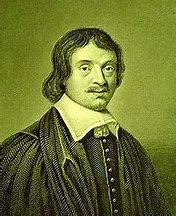
HE had great quickness of parts, a lively apprehension, with a charming vivacity of thought and expression. He had the greatest command of the purest Latin that ever I knew in any man. He was a master both in Greek and Hebrew, and in the whole compass of theological learning, chiefly in the study of the Scriptures. But that which excelled all the rest, he came to be possessed with the highest and noblest sense of divine things that I ever saw in any man.
He had no regard to his person, unless it was to mortify it by a constant low diet, that was like a perpetual fast. He had a contempt both of wealth or reputation. He seemed to have the lowest thoughts of himself possible, and to desire that all other persons should think as meanly of him as he himself did.
He bore all sort of ill usage and reproach like a man that took pleasure in it. He had so subdued the natural heat of his temper, that in a great variety of accidents, and in a course of twenty-two years' intimate conversation with him, I never observed the least sign of passion, but upon one single occasion. He brought himself into so composed a gravity, that I never saw him laugh and but seldom smile. And he kept himself in such a constant recollection, that I do not remember that ever I heard him say one idle word. There was a visible tendency in all he said to raise his own mind, and those he conversed with, to serious reflections.
He seemed to be in perpetual meditation. And, though the whole course of his life was strict and ascetical, yet he had nothing of the sourness of temper that generally possesses men of that sort.
He was the freest of superstition, of censuring others, or of imposing his own methods on them, possible; so that he did not so much as recommend them to others. He said there was a diversity of tempers, and every man was to watch over his own, and to turn it in the best manner he could.
When he spoke of divine matters, which he did almost perpetually, it was in such an elevating manner, that I have often reflected on these words, and felt somewhat like them within myself while I was with him, Did not our hearts burn within us while he talked with us by the way?
His thoughts were lively, oft out of the way and surprising, yet just and genuine. And he had laid together in his memory the greatest treasure of the best and wisest of all the ancient sayings of the heathens as well as Christians, that I have ever known any man master of, and he used them in the aptest manner possible.
He had been bred up with the greatest aversion imaginable to the whole frame of the Church of England.
From Scotland his father sent him to travel. He spent some years in France and spoke that language like one born there. He came afterwards and settled in Scotland, and had presbyterian ordination; but he quickly broke through the prejudices of his education.
His preaching had a sublimity both of thought and expression in it; and, above all, the grace and gravity of his pronunciation was such that few heard him without a very sensible emotion: I am sure I never did. It was so different from all others, and indeed from everything that one could hope to rise up to, that it gave a man an indignation at himself and all others. It was a very sensible humiliation to me, and for some time after I heard him, I could not bear the thought of my own performances, and was out of countenance when I was forced to think of preaching.
His style was rather too fine: but there was a majesty and beauty in it that left so deep an impression, that I cannot yet forget the sermons I heard him preach thirty year[s] ago.
And yet with all this he seemed to look on himself as so ordinary a preacher, that while he had a cure he was ready to employ all others: and when he was a bishop he chose to preach to small auditories, and would never give notice beforehand. He had indeed a very low voice, and so could not be heard by a great crowd.
He soon came to see into the follies of the presbyterians and to hate their covenant, particularly the imposing it, and their fury against all who differed from them. He found they were not capable of large thoughts: theirs were narrow, as their tempers were sour. So he grew weary of mixing with them: he scarce ever went to their meetings, and lived in great retirement, minding only the care of his own parish at Newbottle near Edinburgh. Yet all the opposition that he made to them was, that he preached up a more universal charity, and a silenter but sublimer way of devotion, and a more exact rule of life than seemed to them consistent with human nature: but his own practice did even outshine his doctrine.